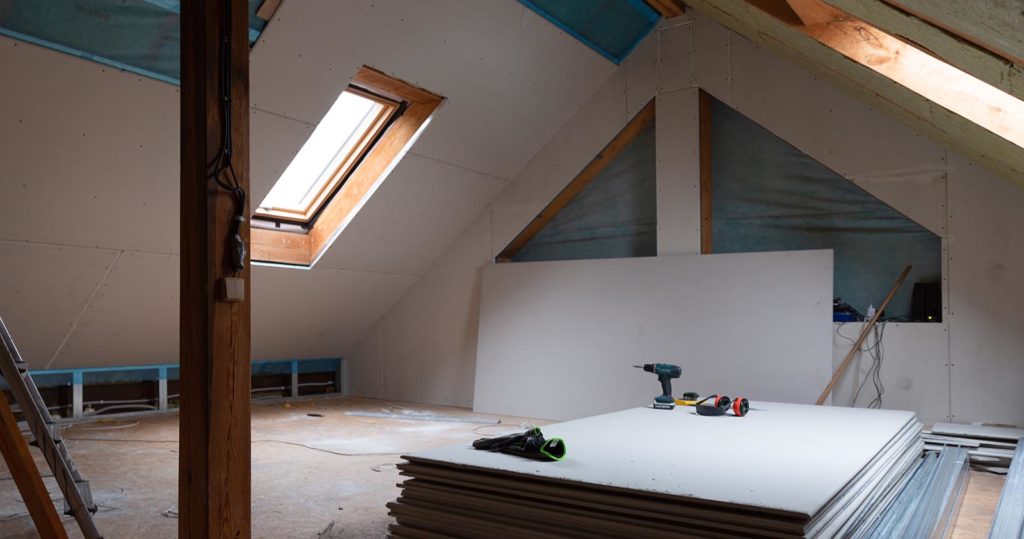Buy to sell mortgage
If you’re looking to buy a house to refurbish and sell, then a buy to sell mortgage might be the right option for you. These types of mortgages are used by property investors to build or grow a property portfolio.

See if you pre-qualify for a mortgage
Enquire about a mortgage with our pre-qualifying affordability form. No imprint on your credit score.
Will not affect credit score
What is a buy to sell mortgage?
A buy to sell mortgage – is actually a bridging loan – which is a short-term finance arrangement for purchasing a property. With a ‘buy to sell mortgage’ the purchaser has the intention to renovate and sell it, rather than buying to live in as a main residence, use as a second home or as a BTL (buy to let).
A traditional mortgage often has longer contract terms and ‘tie ins’ than what is necessary for a buy to sell property. In comparison, buy to sell mortgage loans are typically paid back within 12 months rather than years as with a traditional mortgage.
Mortgage application process
4 simple steps for applying for a mortgage. See more about the mortgage application process here
Complete our
pre-qualify form
Let us know a few details about the mortgage you require
A mortgage specialist will call
One of our brokers will call and get a few more details of your requirements
We search for your perfect mortgage
We will search the market for the best rates for your circumstances
A Decision in Principle is made
We will secure a DIP with a lender, if you approve we move forward with a full application.
Whatever your mortgage goal, there will be something for you

We're on a mission to save you money on your mortgage
- Over 100 lenders
- Personalised Advice Service
- 1000s of products and access to exclusive rates
- Tailored recommendations to your individual needs
- We do the application on your behalf
- Secure Online Portal for document upload
- We liaise with all parties on your behalf
- Helping you even where others have said no
- Excellent Reviews
Arrange a callback
We specialise in helping people find a mortgage and remortgage.
We require your details only once and we’ll know the best lenders for your circumstance and give you the best rates.
What should I do next?
There are many ways to contact us
Enquire online – our simple online form takes just a few minutes.
Give us a Call – our qualified advisers will assess what you are looking and do all the hard work for you searching the market – 0330 232 0285.
Ask for a callback – havent got time now? Ask us to call you back and a time / day convenient to yourself. Call me back.
LiveChat – message us here and tell us what you are looking for our agents are on hand to help.
Buy to sell mortgage FAQ
We have answered all your questions hopefully, but if there is anything you still need to know, please call us on 0330 232 0285
There are many investors who have experience building capital from buying and selling houses. Usually, they will be monitoring the marketplace to find houses that are BMV (below market value) with good potential to renovate and sell for a higher price. Generally, sellers of these types of properties will want a quick sale. This is regularly the case when a person has inherited a property following a relative passing away or at Auction. In these instances, sellers can be more willing to sell below the market value.
As long as you plan well, do your research, have money for the deposit and have the additional funds to invest into the renovation, then buy to sell properties can be good investments.
Your credit score in the UK is based on a number of factors that reflect your credit history and current credit usage. These factors can include:
- Payment history: This is the most important factor in determining your credit score. Lenders want to see that you have a history of making payments on time and in full.
- Credit utilisation: This refers to the amount of credit you are using compared to your total credit limit. It’s generally recommended to keep your credit utilisation below 30%.
- Length of credit history: This refers to the length of time you have been using credit. A longer credit history is generally seen as positive.
- Types of credit: Having a mix of credit types, such as credit cards, loans, and mortgages, can be viewed positively.
- Recent credit applications: Applying for credit can result in a temporary dip in your credit score, as it may be seen as an indicator of financial stress.
- Public records: Bankruptcies, court judgments, and other negative public records can have a significant negative impact on your credit score.
- Errors on your credit report: Errors or inaccuracies on your credit report, such as incorrect personal information or accounts that do not belong to you, can also affect your credit score.
It’s worth noting that credit agencies in the UK may use slightly different criteria to calculate credit scores, so your score may vary slightly depending on which agency you obtain it from. However, the factors listed above are generally considered to be the most important in determining your credit score.
Knowing what mortgage product is best depends on your situation. More specifically, how quickly you want to buy and sell a property. If you’re looking for a turnaround within a matter of months, a more complex product may be required than mainstream lenders can provide. If you’re not looking to ‘flip’ a house as quickly or perhaps intend to live in the property or rent it out, a standard mortgage may work for you.
In addition, the level of work required to the property may dictate the type of mortgage product required. If a house is deemed inhabitable, or in need of extensive work, a specialist mortgage is more likely to be required.
High street or mainstream lenders tend to stick to simpler mortgage cases. This allows them to keep their products and fees more rigid and manageable but doesn’t cater for more complex cases. This is where specialist lenders can help. They may be less well known but are certainly no less reputable than more well-known lenders.
Knowing what mortgage product is best depends on your situation. More specifically, how quickly you want to buy and sell a property. If you’re looking for a turnaround within a matter of months, a more complex product may be required than mainstream lenders can provide. If you’re not looking to ‘flip’ a house as quickly or perhaps intend to live in the property or rent it out, a standard mortgage may work for you.
In addition, the level of work required to the property may dictate the type of mortgage product required. If a house is deemed inhabitable, or in need of extensive work, a specialist mortgage is more likely to be required.
High street or mainstream lenders tend to stick to simpler mortgage cases. This allows them to keep their products and fees more rigid and manageable but doesn’t cater for more complex cases. This is where specialist lenders can help. They may be less well known but are certainly no less reputable than more well-known lenders.
Read more on bridging loans
When looking to buy a property quickly, there are instances where residential mortgages may be a viable option. Provided the property is habitable and you will live there on completion, a residential mortgage could work. However, if the property isn’t habitable, a specialist mortgage or bridging loan is more likely to be relevant. If you aren’t to be moving in, you may need a buy to let mortgage (see below).
It depends on how quickly you wish to sell. Residential mortgages carry lower interest rates than bridging products but are far less flexible. Early repayment charges (ERCs) often make them unsuitable for getting out of quickly or cheaply, although there are some residential mortgage products with no ERCs, but these are likely to carry higher interest rates.
Buy to let (BTL) mortgages are suitable for investors looking to buy a property, without planning on living in the property themselves. Similar to a residential mortgage, the property needs to be habitable. The only difference is that it is not you living in the property upon completion. The same issues apply with regards to entry and exit fees or restrictions. These may bring into question how appropriate this type of mortgage is. It again depends on your intentions, and how quickly you intend on buying and selling.
Below are some of the lenders we work with















Case Study
Customer story
Fast bridging finance when it’s needed most to save a £21,000 fee!
Clever Lending can provide short-term finance for almost any scenario, especially when not meeting a deadline would have cost £21,000.
We helped one customer to secure a £420,000 bridging loan in just 9 days!
After working closely with the lender and solicitor, the customer was able to pay off his existing bridge and save having to pay a 5% default fee.
We also achieved a monthly interest rate of 0.65%








